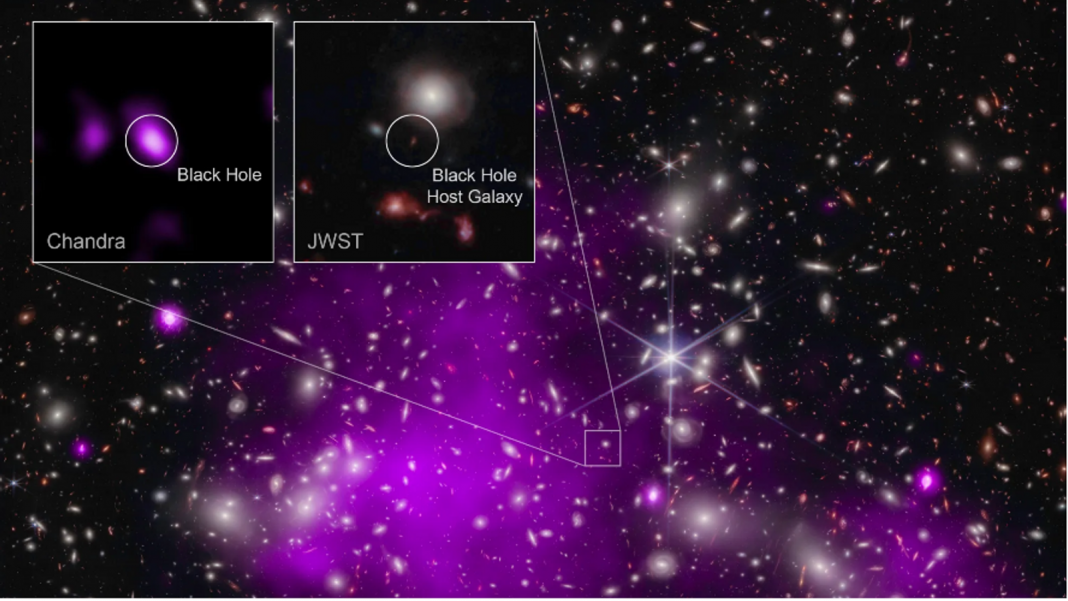
Astronomers say they have discovered the oldest black hole yet.
It was formed 470 million years after the Big Bang and was detected in X-rays, using NASA telescopes.
There is “strong evidence” it was born “massive” – and is believed to weigh between 10% and 100% the mass of all the stars in its galaxy.
NASA said the black hole was at an early stage of growth never been witnessed before, which may explain how some of the first supermassive black holes in the universe formed.
The findings confirm what, until now, were theories that supermassive black holes existed at the dawn of the universe.
Scientists believe the universe began 13.7 billion years ago, meaning the black hole’s estimated age is 13.2 billion years old.
The black hole, found in a galaxy called UHZ1, is 10 times bigger than the one in our own Milky Way, which is 14.6 million miles in diameter.
What is a black hole?
Black holes are regions in space where an enormous amount of mass is packed into a tiny volume.
This creates a gravitational pull so strong that not even light can escape.
NASA said: “This discovery is important for understanding how some supermassive black holes can reach colossal masses soon after the Big Bang.
“Do they form directly from the collapse of massive clouds of gas, creating black holes weighing between about 10,000 and 100,000 Suns? Or do they come from explosions of the first stars that create black holes weighing only between about 10 and 100 Suns?”
Explaining the differentiations between black holes, co-author of the Nature Astronomy paper, Andy Goulding, said: “There are physical limits on how quickly black holes can grow once they’ve formed, but ones that are born more massive have a head start.
“It’s like planting a sapling, which takes less time to grow into a full-size tree than if you started with only a seed.”
Read more:
Moon is millions of years older than previously thought
‘Hero’ astronaut who helped save Apollo 13 crew dies
Priyamvada Natarajan, who took part in the study published in Nature Astronomy, said: “It’s just really early on in the universe to be such a behemoth.”
She also said: “We think that this is the first detection of an ‘outsize black hole’ and the best evidence yet obtained that some black holes form from massive clouds of gas.
“For the first time, we are seeing a brief stage where a supermassive black hole weighs about as much as the stars in its galaxy, before it falls behind.”
Researchers used a combination of NASA’s James Webb Space Telescope and NASA’s Chandra X-ray observatory to detect the black hole.







